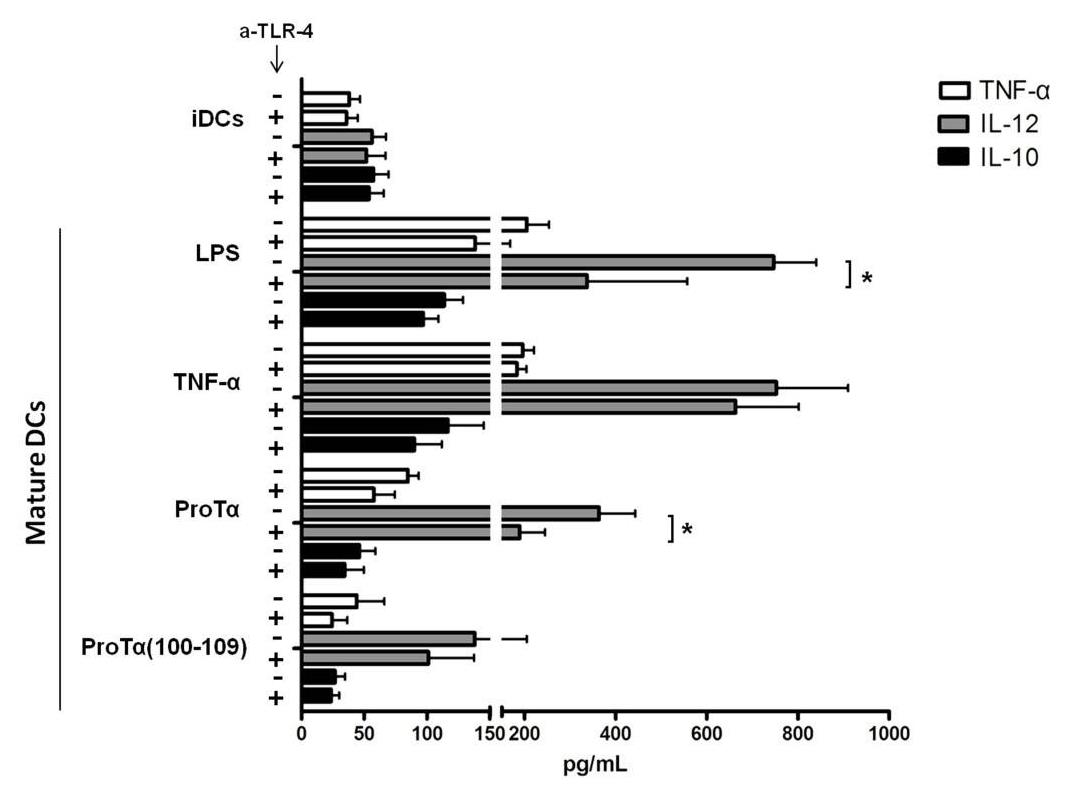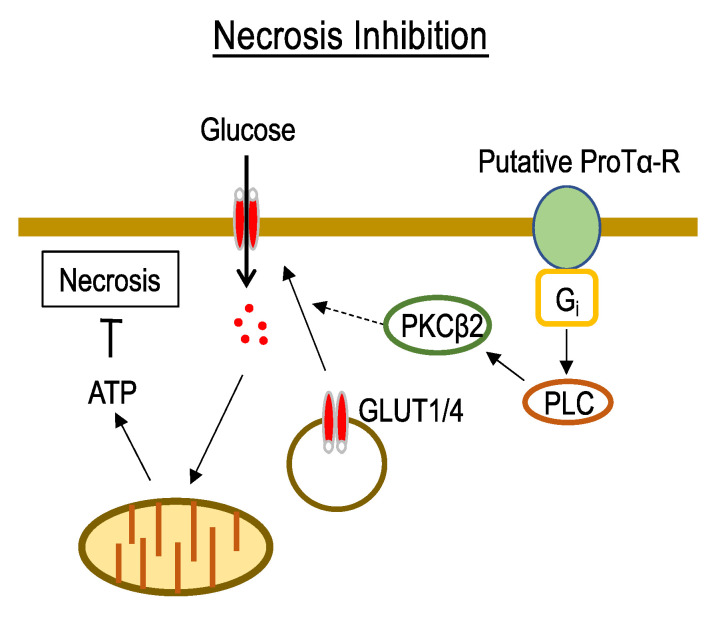PTMA
-
Official Full Name
prothymosin, alpha -
Overview
Thymosin α1 is a peptide fragment derived from prothymosin alpha, a protein that in humans is encoded by the PTMA gene. Prothymosin alpha may mediate immune function by conferring resistance to certain opportunistic infections. -
Synonyms
PTMA;MGC104802;TMSA;prothymosin, alpha;OTTHUMP00000204428;OTTHUMP00000204433;prothymosin, alpha (gene sequence 28);gene sequence 28;prothymosin alpha;OTTHUMP00000204425;prothymosin alpha protein;OTTHUMP00000204427
Recombinant Proteins
- Human
- Mouse
- Rat
- E.coli
- Yeast
- Mammalian Cells
- HEK293
- GST
- Non
- His
- MBP
- SUMO
- Avi
- Fc
Background
What is PTMA Protein?
Prothymosin alpha (PTMA) is a small, highly acidic protein made up of 111 amino acids, found in mammalian cells. Since its discovery in 1984, there’s been some debate about what it really does. Inside the cell, PTMA acts like a guard against cell death and helps cells grow, while outside, it plays a part in modulating immune reactions and acts like a “danger signal” molecule. PTMA is involved in controlling cell growth, differentiation, and immune responses. It binds to the PTEN promoter to boost its expression and works with TRIM21 to regulate Nrf2 signaling, acting as a tumor suppressor, especially in bladder cancer. Additionally, as an important immune mediator, PTMA might be targeted for treating or diagnosing immune-related conditions like cancer, inflammation, and sepsis.
Fig1. Proposed scenario on proTα’s dual role. (P Samara, 2016)
What is the Function of PTMA Protein?
Prothymosin alpha (PTMA) is a phosphorylated protein found in mammals and fish, playing a role in cell growth and immune response. It influences various biological processes such as cell cycle, proliferation, apoptosis, gene transcription, and immune regulation. PTMA is thought to enhance immune function, offering resistance to certain infections, and is also involved in sperm development, pointing to a role in reproductive cell maturation. Inside cells, PTMA helps prevent apoptosis by stopping the formation of apoptotic bodies and is involved in chromatin remodeling and transcription regulation. This versatile protein is crucial in managing everything from cell growth and death to controlling immune responses.PTMA Related Signaling Pathway
Prothymosin alpha (PTMA) is a protein that plays a role in various signaling pathways linked to cell growth, cell death, and immune responses. It helps regulate Nrf2 signaling by boosting PTEN and coordinating with TRIM21, which is beneficial in fighting bladder cancer. PTMA is also involved in the VEGFA-VEGFR2 pathway, important for blood vessel formation and tumor growth. In bladder cancer, losing PTMA can signal a poor prognosis as it aids in PTEN transcription and mRNA expression through interaction with TRIM21, affecting Keap1/Nrf2 signaling. Additionally, PTMA engages with several other pathways like TGF-β/smad, PI3K-Akt, GnRH, estrogen receptor, and interferon-γ, illustrating its complex role in regulating immune responses and acting against tumors.PTMA Related Diseases
Prothymosin alpha (PTMA) encodes a protein involved in various cellular processes and has connections to several diseases. It’s linked with conditions like Hepatitis B and invasive malignant thymoma. Beyond these, PTMA is involved in critical pathways, including the VEGFA-VEGFR2 signaling and C-MYC transcription activation, both of which are key players in tumor growth and angiogenesis. Anomalies in PTMA functionality could contribute to the development and progression of these conditions, suggesting its potential role in disease pathology. Changes in PTMA might play a part in other health issues like some types of cancer, autoimmune disorders, and maybe even neurodegenerative diseases, given its impact on how cells grow, die, and manage immune responses. Grasping what PTMA does could lead to fresh ways to diagnose and treat these conditions.Bioapplications of PTMA
Recombinant Prothymosin alpha (PTMA) protein plays a key role in research, industrial production, and medical studies. In science, it’s used to study basic biological processes like cell growth, programmed cell death, and gene expression regulation, as well as cancer-related signaling pathways. In medical research, PTMA serves as a biomarker to help assess how aggressive a tumor might be and its likely prognosis, while its role in immune system regulation is also a hot topic. On the industrial side, recombinant PTMA is instrumental in developing new drugs and vaccines, such as short peptide forms for heart attack treatment and antibody production for research and diagnostic techniques like immunohistochemistry, ELISA, and flow cytometry. These applications highlight PTMA’s diverse potential in propelling scientific discovery and clinical practice.Case Study
Case Study 1: Kyriaki Ioannou, 2013
Cancer immunotherapies are starting to show clinical benefits, especially with peptide-pulsed dendritic cells (DCs). Various adjuvants like Toll-like receptor (TLR) agonists are being widely tested as part of these DC-based vaccines. However, DCs in cancer patients are often dysfunctional, hinting that DCs developed outside the body might work better. Here researchers found that prothymosin alpha (proTα) and its decapeptide can help DCs mature in a lab setting. This study aimed to see if these matured DCs are effective and to explore how they might work. When DCs mature with proTα or its peptide, they show immune-boosting properties and can trigger specific immune responses against HER-2/neu peptides. It seems this maturation is linked to TLR-4, based on certain molecular markers we checked.-
 Fig1. ProTα- or proTα(100–109)-matured DCs secrete pro-inflammatory cytokines.
Fig1. ProTα- or proTα(100–109)-matured DCs secrete pro-inflammatory cytokines. -
 Fig2. T cells stimulated with proTα- or proTα(100–109)-matured DCs are cytotoxic in the presence of HER-2(9369).
Fig2. T cells stimulated with proTα- or proTα(100–109)-matured DCs are cytotoxic in the presence of HER-2(9369).
Case Study 2: G Luca Gusella, 2016
Prothymosin α (ProTα), particularly its variants isoB and p7, are small proteins with roles both inside and outside cells. Recently discovered in CD8+ T cells and cervicovaginal washings, these variants show strong anti-HIV effects. Like the well-known iso2 form, their HIV-fighting power is linked to type I interferons. Researchers explored if isoB and p7 interact with TLR4 and their release timing in HIV infection. In our study, these variants significantly ramp up IFN-β and other key immune molecules in human macrophages, with TLR4 dependent on IFN-β stimulation. However, their ability to boost TNF-α and IL-6 might involve other pathways too. Computer models suggest that isoB and p7 are flexible, lacking a nuclear localization signal, and mass spectrometry confirms their quick release after HIV-1 exposure.-
 Fig3. INF-β and IFN-λ1 mRNAs induction by ProTα variants.
Fig3. INF-β and IFN-λ1 mRNAs induction by ProTα variants. -
 Fig4. Release of ProTα variants by ELISA.
Fig4. Release of ProTα variants by ELISA.
Quality Guarantee
High Purity
-
.jpg) Fig1. SDS-PAGE (PTMA-2248H)
Fig1. SDS-PAGE (PTMA-2248H)
-
.jpg) Fig2. SDS-PAGE (Ptma-1343R)
Fig2. SDS-PAGE (Ptma-1343R)
Involved Pathway
PTMA involved in several pathways and played different roles in them. We selected most pathways PTMA participated on our site, such as Epstein-Barr virus infection, which may be useful for your reference. Also, other proteins which involved in the same pathway with PTMA were listed below. Creative BioMart supplied nearly all the proteins listed, you can search them on our site.
| Pathway Name | Pathway Related Protein |
|---|---|
| Epstein-Barr virus infection | GTF2E2,PIK3CG,POLR2E,TRAF2,PSMD2,TAB2,POLR2D,POLR3K,PRKACB,PSMC1 |
-
 Fig1. Proposed mechanisms underlying ProTα-induced necrosis inhibition. (Hiroshi Ueda, 2023)
Fig1. Proposed mechanisms underlying ProTα-induced necrosis inhibition. (Hiroshi Ueda, 2023) -
 Fig2. Proposed mechanisms underlying ProTα-induced apoptosis induction. (Hiroshi Ueda, 2023)
Fig2. Proposed mechanisms underlying ProTα-induced apoptosis induction. (Hiroshi Ueda, 2023)
Protein Function
PTMA has several biochemical functions, for example, protein binding. Some of the functions are cooperated with other proteins, some of the functions could acted by PTMA itself. We selected most functions PTMA had, and list some proteins which have the same functions with PTMA. You can find most of the proteins on our site.
| Function | Related Protein |
|---|---|
| protein binding | RBPJ,IL36RN,LDLRAD1,PLEKHG2,CSRP2,EIF4EBP2,PCGF3,FSTL3,CCDC93,COPS2 |
Interacting Protein
PTMA has direct interactions with proteins and molecules. Those interactions were detected by several methods such as yeast two hybrid, co-IP, pull-down and so on. We selected proteins and molecules interacted with PTMA here. Most of them are supplied by our site. Hope this information will be useful for your research of PTMA.
SET;TERF2IP;JUN;PHB;p27958-pro_0000037576;TERF1;TERF2;NS;CDK17;P
Resources
Related Services
Related Products
References


